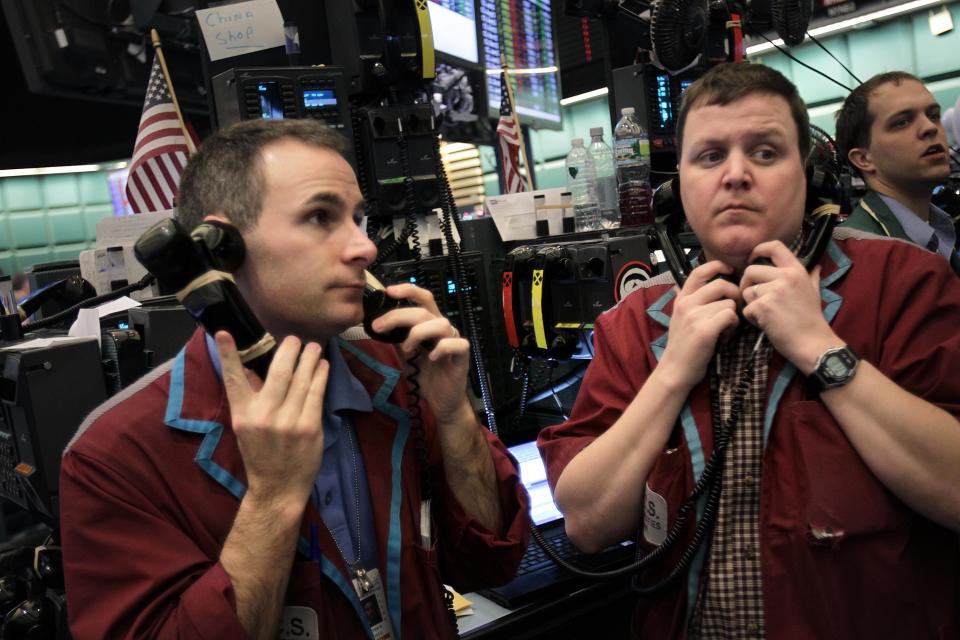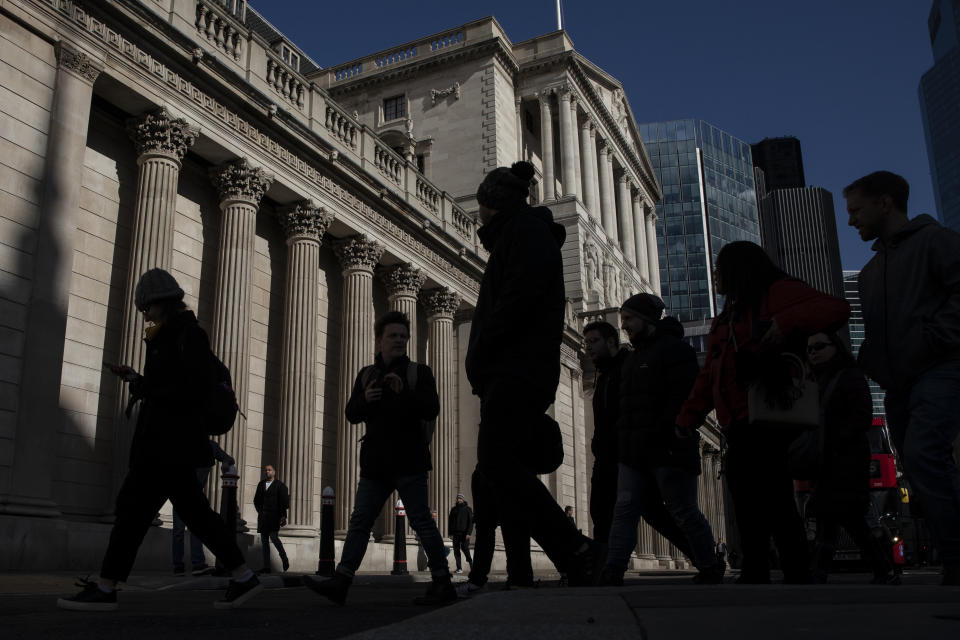Wall Street forecasts can't keep up with coronavirus: Morning Brief
Friday, March 13, 2020
Get the Morning Brief sent directly to your inbox every Monday to Friday by 6:30 a.m. ET. Subscribe
‘In short, it seems that recession is increasingly likely.’
Wall Street forecasters can’t keep up with sharp selloffs in the stock market and an abrupt decline in economic activity.
On Thursday, the economics team at Wells Fargo published a note to clients in which the firm updated its outlook for U.S. economic growth this year. Wells’ most recent outlook was published on Wednesday.
“In the forecast that we released just yesterday, we called for a mild contraction in U.S. GDP in Q2-2020 with a return to growth in the following quarter,” said Jay Bryson, Wells Fargo’s acting chief economist.
“However, the events of the past 24 hours or so have made it painfully obvious that we need to rethink this forecast.”
Without identifying a specific magnitude of the decline Wells Fargo expects to see in U.S. economic activity this year, Bryson said Thursday that, “It looks increasingly likely that the coming contraction will be deeper and more protracted than we were anticipating just a few days ago.
“In short, it seems that recession is increasingly likely.”
Bryson describes the airline and hotel industries as being in “free fall” and said the decline in these industries will have multiplier effects across the economy. “Businesses may be loath to displace workers right now, but layoffs will eventually commence when order books begin to dry up,” Bryson said. Wells Fargo expects to publish an updated detailed forecast in the coming days.
In a note similar in tone to Wells Fargo’s commentary, JPMorgan economist Michael Feroli said Thursday that the, “coming collapse in consumer spending will pull first-half growth into negative territory.” Feroli adds that while data from the BEA suggests 5.3% of GDP comes from spending in the travel and tourism industries, “this is surely an understatement of the spending at risk.”
Looking at broader “at risk” consumer spending categories and related employment, Feroli sees around 7% of GDP and 12% of employment in the direct crosshairs of a sharp pullback in economic activity related to measures aimed at stemming the spread of coronavirus. And while news within the last 24 hours certainly suggests we will see increasing cancellations of public schools, sporting events, and travel, a short period of daily life disruption might not result in a similarly brief period of economic stress.
“Even if the shock is transitory it takes time for firms, households, and financial institutions to repair balance sheets,” Feroli writes. “This is sometimes referred to as the financial accelerator, as even one-off shocks to demand can propagate into deeper and longer-lasting hits to output growth.”
Feroli now expects U.S. GDP growth will decline at an annualized rate of 2% in the first quarter and 3% in the second quarter.

And these revisions to economic forecasts from Wall Street economists follow a theme seen in recent days as investors and strategists scramble to keep up with the market’s decline and the rapid change in public responses to the coronavirus outbreak in the U.S. and abroad.
On Wednesday, we highlighted work from David Kostin at Goldman Sachs, who forecasted the S&P 500 would eventually trade down to 2,450 and end the post-crisis bull market. The bull market ended a day later. By the end of Thursday’s trading session, all three major U.S. indexes were in bear markets and the S&P 500 had settled at 2,480.64.
In a move designed to reassure markets, the Federal Reserve moved to inject $1.5 trillion into the banking system on Thursday, a decision ultimately met with an indifferent response by markets in turmoil.
Unknowns about the depths of the current health crisis in the U.S. and the speed with which financial markets have priced in negative economic scenarios have challenged investors, strategists, economists, and policymakers alike.
But in this uncertain moment when it seems nothing about the future can be confidently grasped, that coronavirus and its related challenges will continue confounding experts trying to provide answers and clarity is as safe a bet as one can make.
By Myles Udland, reporter and co-anchor of The Final Round. Follow him at @MylesUdland
What to watch today
Economy
8:30 a.m. ET: Import Price Index month-on-month, February (-1.0% expected, 0.0% in January)
10 a.m. ET: University of Michigan Sentiment, March preliminary (95.0 expected, 101.0 prior)
Top News

European stocks rise after US Fed vows to pump trillions into markets [Yahoo Finance UK]
U.S. companies draw on credit lines, fearing they may lose them [Reuters]
Walt Disney World to close theme parks through end of month [AP]
Slack quarterly results beat estimates; co-founder says coronavirus will change how we do work [Yahoo Finance]
YAHOO FINANCE HIGHLIGHTS
Here's what connects the Crash of 1987 with the Crash of 2020
How to clean your iPhone to kill the new coronavirus and other germs
—
Follow Yahoo Finance on Twitter, Facebook, Instagram, Flipboard, SmartNews, LinkedIn, YouTube, and reddit.
Find live stock market quotes and the latest business and finance news
For tutorials and information on investing and trading stocks, check out Cashay

 Yahoo Finance
Yahoo Finance 

